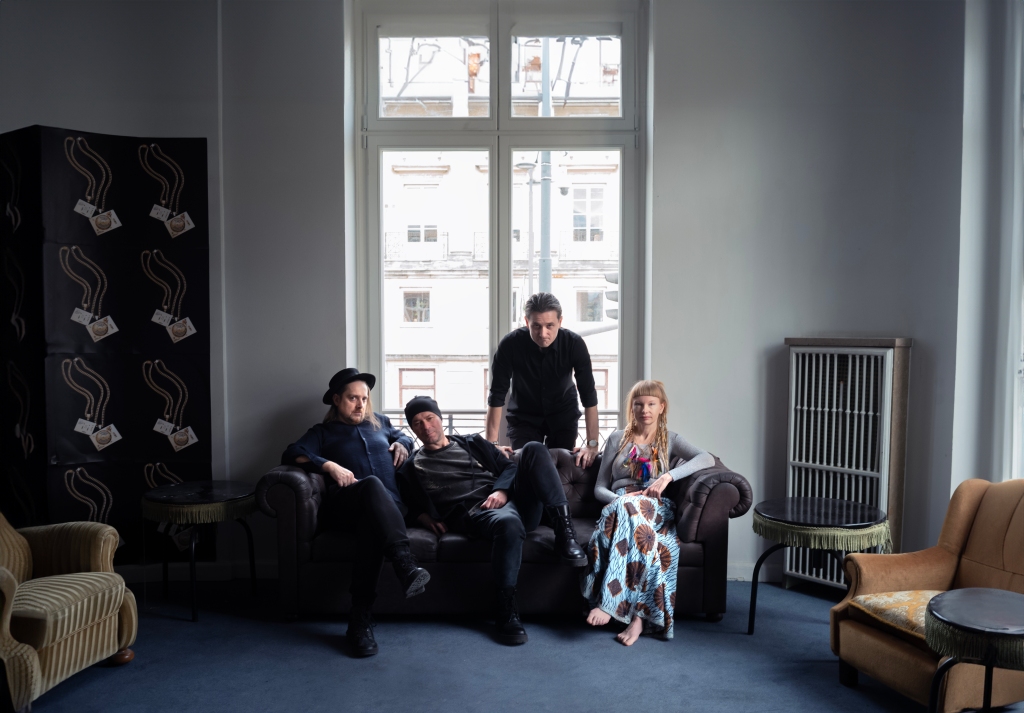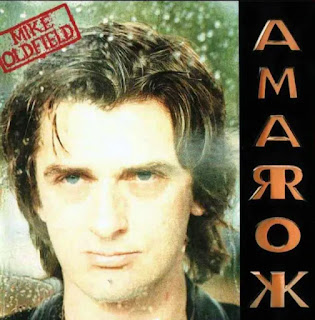Be sure to follow KMXT FreeForm Radio on Facebook and Bandcamp.
Please support FreeForm Radio and KMXT by going to KMXT.org and pledging your support.
The music you hear on tonight's show is available on the artists' Bandcamp pages and websites and Spotify. (links below)
We urge you to support the musicians you hear on FreeForm Radio.

Tone Science sub-label, from DiN records, continues to explore the world of modular synth music.
Following the success and critical acclaim of the first eight Tone
Science compilation albums,
DiN label boss Ian Boddy has collated
another nine tracks from musicians of varying backgrounds working in the
realms of modular synthesis.
As the Tone Science journey continues it never ceases to amaze just how
varied and individualistic each musicians work can be. Whilst the
hardware is technologically based each artist teases out a reflection of
their own musical personality.
This volume kicks off with two pointillistic compositions from Loula
Yorke and State Azure with intertwining sequencer patterns flowing and
coiling around to create ever changing soundscapes.
After this energetic start the next pair of tracks from Theda Electronic
Music and Swansither enter calmer, ambient territory where careful
sculpting of synthesiser voices creates room for expression and
atmosphere.
The mid-point of the album sees Sulk Rooms take us into darker territory
with a drone based piece that slowly climbs from the undergrowth like
some great creature arising from its
slumber.
The next three tracks from Tomorrow The Cure, JacqNoise and Alex Ball
are rhythmically based and showcase just how different the feel and
energy of music made with modular synths can be with pure tones, deep
bass and transient blips respectively.
Finally Michael J. York leads us gently into the distance with a
beautiful, shimmering cocoon of blissful sound to close out the album.
“Tone Science Module No.9 Theories and Conjectures” continues the
journey down the rabbit hole of possibilities and sound worlds inhabited
by artists and musicians working in this ever fascinating and varied
musical field. credits
releases April 19, 2024
1) Loula Yorke - Eala - 7:44
If you’ve come to save me, you’re wasting your time. Your freedom is bound up with mine.
loulayorke.com
2) State Azure - Scanner - 8:23
The lone traveller glides through the void, the scanner revealing
secrets in the darkness. Guided by stars, they explore the cosmic sea,
uncovering its mysteries.
youtube.com/@stateazure
3) Theda Electronic Music - Per-Bast - 7:24
An exercise in semi-aleatoric machine/human collaboration, using various
constrained semi-random elements to control pitch, timbre and timing,
further elements added by myself to accentuate the most pleasing moments
that the synthesizers brought up.
soundcloud.com/theda-electronic-music
4) Swanswither - Muad’Dib - 7:04
5 a.m on a rooftop in Marrakech. The mysterious ebb and flow of several
competing mosques calling to prayer. Recreated with my Make Noise Shared
System.
swansither.bandcamp.com
5) Sulk Rooms - Grasping The Eye Of The Duck - 6:43
A piece of music that came from sheer chance jamming with my Bass VI
guitar and Strega. I love venturing more and more into sludge territory
these days with pulsing atmospherics.
instagram.com/thomasragsmusic
6) Tomorrow The Cure - Minimum - 6:18
Based around a 4-note melody using one VCO and a self-oscillating VCF.
Performed and recorded entirely in Eurorack, all sounds are AJH Synth
modules with modular FX.
tomorrowthecure.bandcamp.com
7) JacqNoise - Lono - 5:51
In the realm of sounds, errors can manifest as dissonance. The noises
introduce characters like embodied structures and sequences. Lono is the
Hawaiian God of Music and Peace. May his spirit be alive in the sounds,
providing a base of peace we so all need in the world today.
jacqnoise.cargo.site
8) Alex Ball - Adaption - 6:23
Polyrhythmic synthesizer sequences dancing in spring reverb, tape echo
and modern glitches with soft analogue percussion and gentle voices in
support.
alexballmusic.com
9) Michael J. York - And They Shall Have Stars - 6:20
This vignette was created quite spontaneously one clear night under the
gaze of Glastonbury Tor using a Fenix II, a Moog and a reverb pedal.
thewitchingtale.bandcamp.com
license
all rights reserved
alex ball
ambient
em
electronic
electronic music
electronica
jacqnoise
loula yorke
michael j. york
state azure
sulk rooms
swansither
theda
tomorrow the cure
modular synth
Sunderland
Review by David Randall
Classical rock is an often maligned
genre, when done well it can bring new dimension to time-worn classics,
done badly and it can fail to enhance the originals.
The Royal Philharmonic Orchestra have
always done it better than most, and in recent times they’ve
orchestrated Queen and Fleetwood Mac and – even further back – the music
of Pink Floyd and – where it all started – Deep Purple in 1969. I
suppose it all comes down to the arrangements and the interpretation.
Having well known rock musicians as
“soloists” (and in one example the original artist) stops any
over-egging or extravagance and a core rhythm section including the
Cottle brothers – Laurence and Richard – at least keeps the foundations
rocking. They are particularly impressive on ‘Watcher Of The Skies’ and
it’s perhaps a little surprising that Steve Hackett is conspicuous by
his absence.
Amongst the guests, Ian Bairnson stands
in for David Gilmour on ‘Comfortably Numb’ whilst one-time mediaeval
rocker Richard Harvey (Gryphon) excels on ‘Thick As A Brick’.
The heaviest almost big band diversion is King Crimson’s ‘21st
Century Schizoid Man’ which features Gavin Harrison and the fusion
guitar of Guthrie Govan. Iron Maiden’s Adrian Smith is featured on
Rush’s ‘Red Barchetta’.
Elsewhere, as you might expect, this is a
production job of widescreen proportions, especially evidenced on
‘Think Of Me With Kindness’ the lesser-known Gentle Giant song (from
‘Octopus’ in 1972) that now comes across as Vaughan Williams mixed with
Big Country (the movie theme not the band). Yes’ ‘Roundabout’
(featuring the late Jimmy Greenspoon on keyboards) sounds like it could
have been a Bond theme. Of course this treatment may not appeal to all
tastes but it is very well done.
Hopefully this will be the start of a
series (there’s also a “More Symphonic Rock” album released in May
although not on the same label). It demonstrates that in amongst prog
rock there was always a damn good classical musician trying to get out,
and an even more durable tune. ****




















